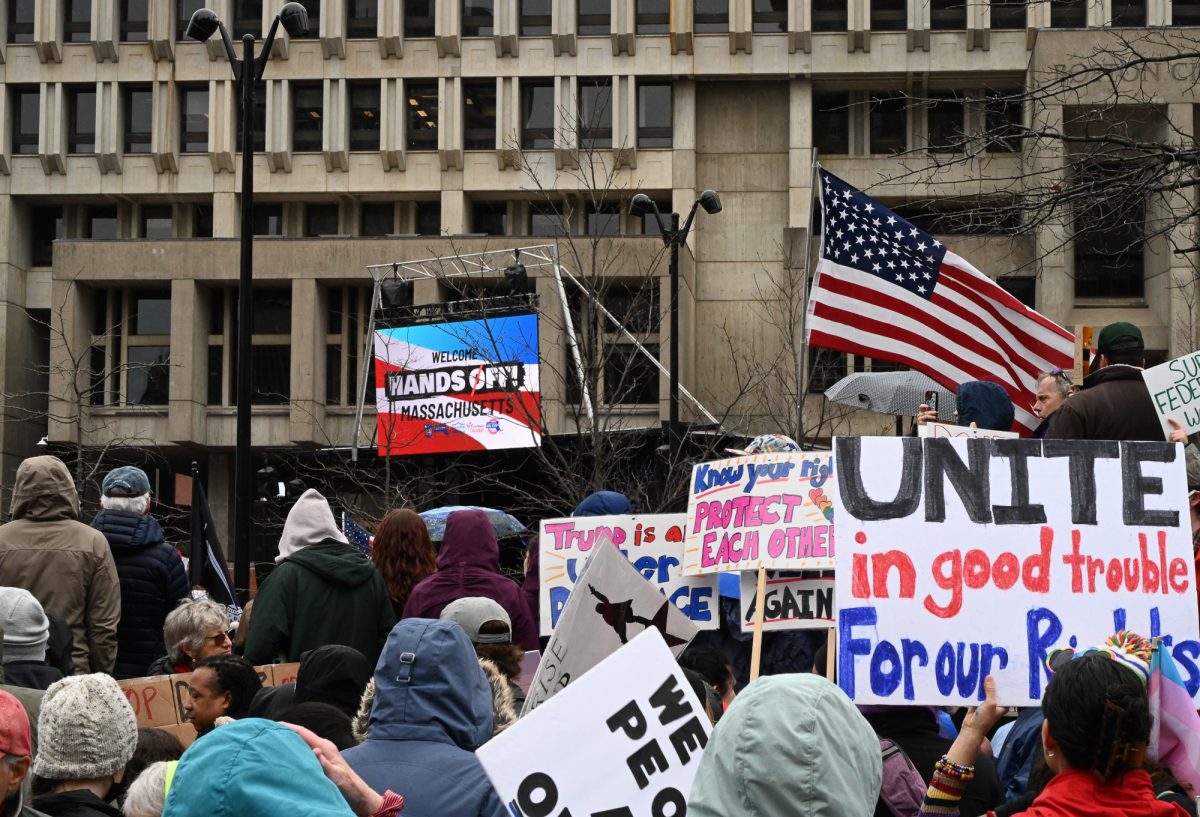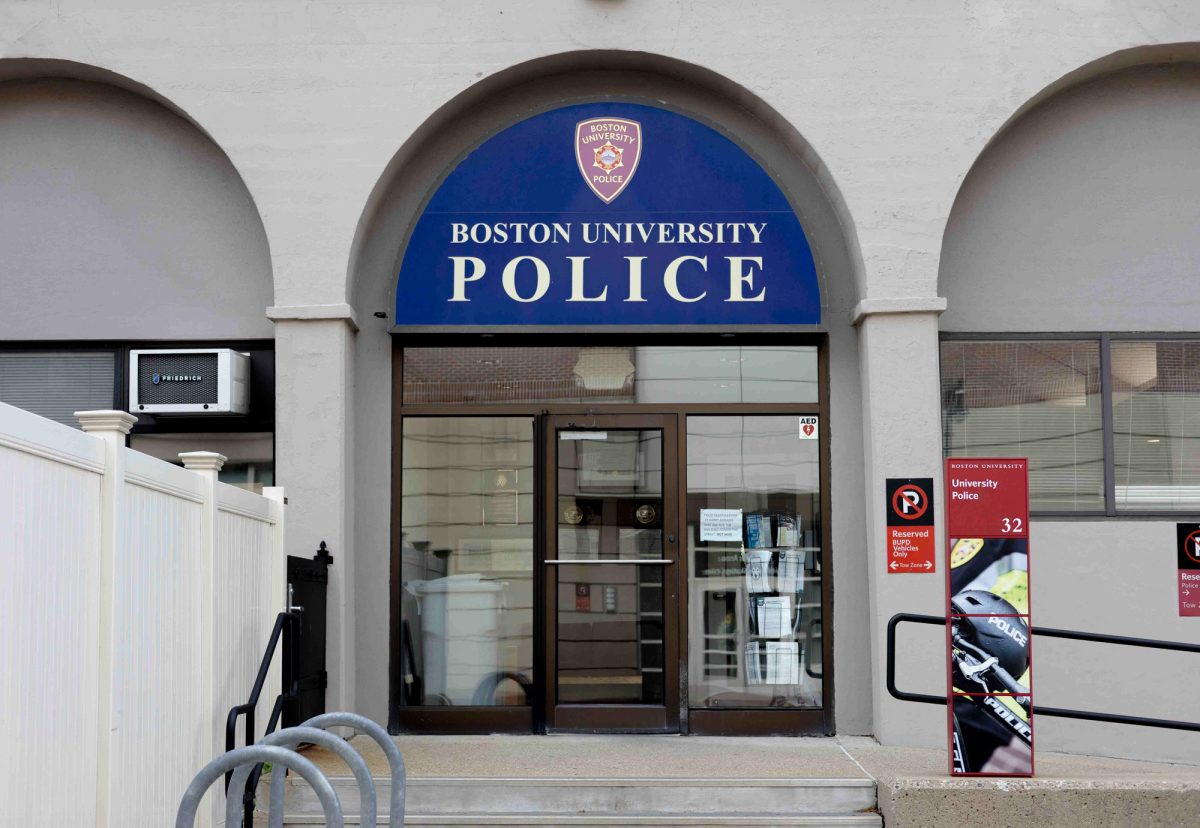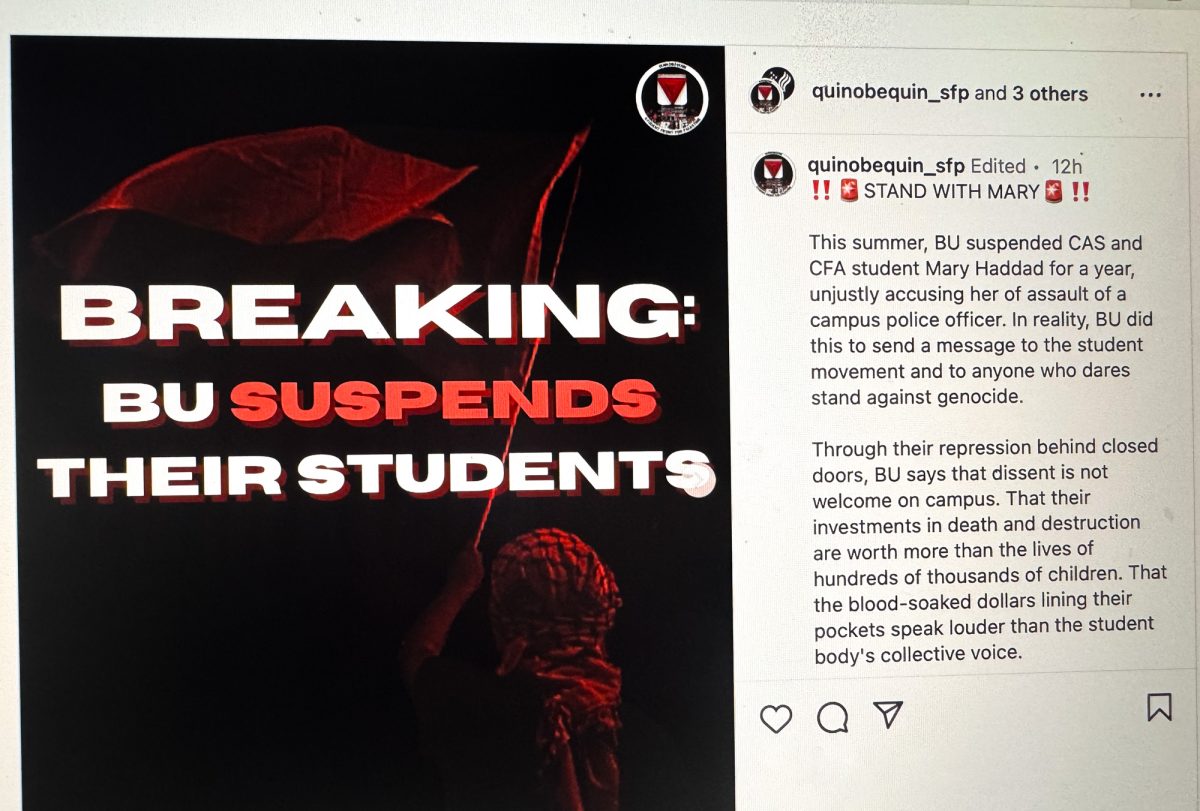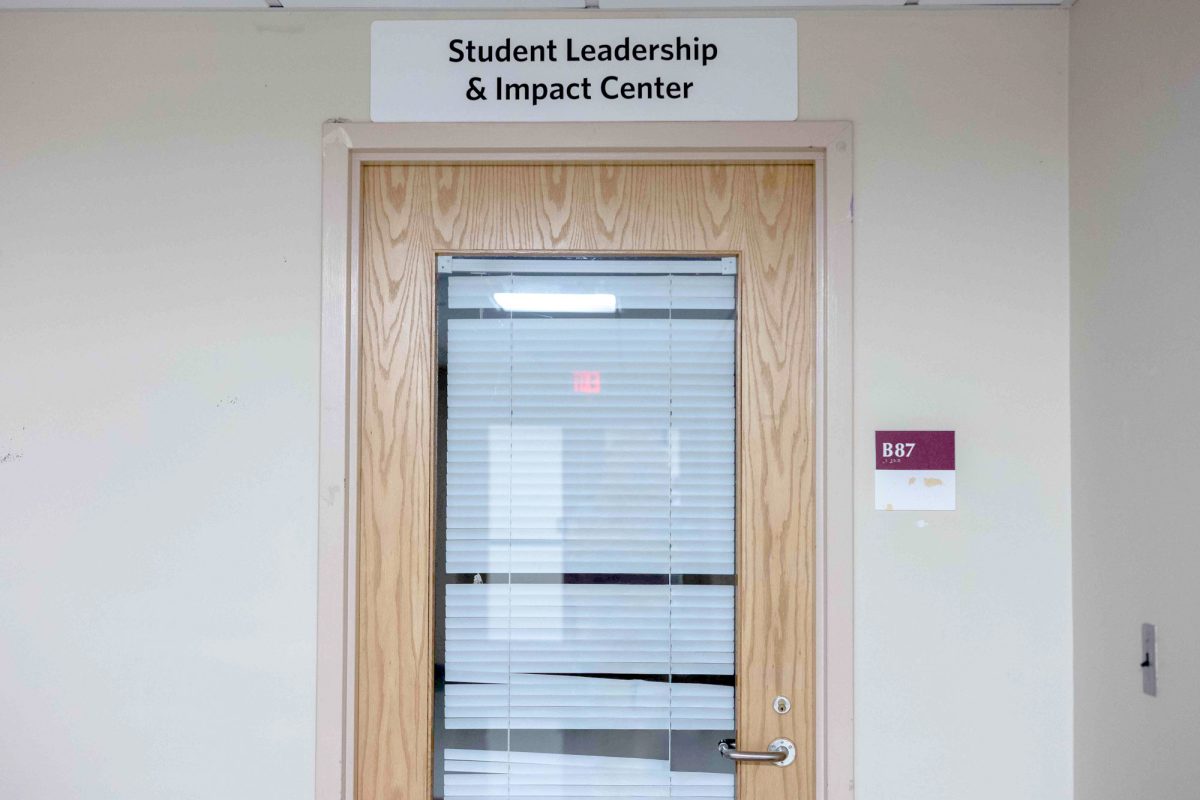A North Cambridge mural of Rep. John Lewis was vandalized Monday night, with lines of black spray paint obscuring his face and partially covering one of the congressman’s most iconic quotes.
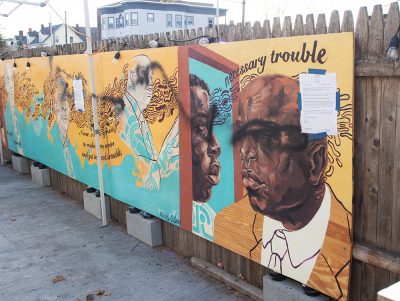
The mural, which hangs outside of restaurant Urban Hearth, was one spot hit in a series of overnight taggings on the 2200-2300 block of Massachusetts Avenue, according to Jeremy Warnick, director of communications for the Cambridge Police Department.
While several businesses were tagged, no other artwork on the strip was affected.
Artist Rocky Cotard said the painting, which was commissioned in August and completed in October, was intended to memorialize Lewis’ legacy and reflect the community’s feelings after a summer of racial justice protests.
“Do not get lost in a sea of despair,” the mural reads, “Be hopeful, be optimistic. Our struggle is not the struggle of a day, a week a month, or a year, it is the struggle of a lifetime. Never, ever be afraid to make some noise and get in good trouble, necessary trouble.”
On the wall, Lewis’ words weave between portraits of the congressman against a swirling yellow-and-blue background.
“It was really about inspiring people to work toward things that they didn’t necessarily see in the immediate future,” Cotard said. “It’s really a reminder to keep going, keep doing things that you really believe in, with love.”
Cotard, who graduated from and now works at Lesley University in Cambridge, first heard about the vandalism from a supporter who frequently sends emails about his appreciation for the mural. The artist said the news came as a shock.
“This was a man who’s done so much for society, who really devoted his life toward the bettering of experiences of different people,” Cotard said. “I just really imagined that it would be understood that respect is deserved in this space.”
Erin Miller, executive chef and owner of Urban Hearth, wrote in a statement that the mural had been well-received by the surrounding neighborhood, where it stood as a conversation piece among diners and passersby.
The mural was initially conceived as a response to the Black Lives Matter movement and the need for dialogue about social justice, Miller wrote. After Lewis’ death in July, she settled on him as a more specific subject.
Since the vandalism was discovered Tuesday morning, Miller added that there has been an “outpouring of support” from the neighborhood locals and residents across Boston.
Cambridge has a history of supporting public art, said Jason Weeks, executive director of the Cambridge Arts Council.
He added that the role of murals and sculptures in the city’s culture “really can’t be overstated,” but that the defacement of Urban Hearth’s mural was uniquely impactful.
“That beautiful mural is such a comment on right now: our politics, Black Lives Matter, social and racial justice. It’s just very immediate in that sense,” Weeks said. “To have that damaged in any way is really heartbreaking.”
Weeks said vandalism is usually not a major issue in Cambridge, though there is a natural risk of damage and decay whenever art is displayed in public.
He attributed that to a high degree of public trust and community pride — residents tend to be quick in reporting defacement to city officials.
In 2018, there were 29 reported incidents of vandalism in Cambridge, down from 42 in 2017, according to Warnick. Data from 2019 onward is not yet available.
The Arts Council is reaching out to Cotard and Urban Hearth to offer support in preventing future defacement, offering technical advice and information about tamper-proof materials and coatings, Weeks said. Because the mural is on private property, the City cannot provide financial support.
The Cambridge Police is seeking video evidence identifying the suspect, Warnick added.
Whether Urban Hearth’s mural was specifically targeted for its political messaging is unknown at this time, restaurant representative Sharon Mombru wrote in an email.
Cotard said the vandal’s intentions do not matter, because they do not change that the mural has suffered this damage.
“The fact that this is what it is, and the work has already been defaced is already the worst for me,” Cotard said. “Even when it comes to somebody who did it out of nowhere … you really need to think about how your actions affected [the community].”
Miller wrote its restoration would begin early next week and invited community members to visit.
Though the vandalism was hurtful, Cotard said, he views it as a temporary setback and intends to assess the damage this weekend.
“I still have my creativity. I’m still an artist,” Cotard said. “I still love painting, so not much has changed.”



















































































































